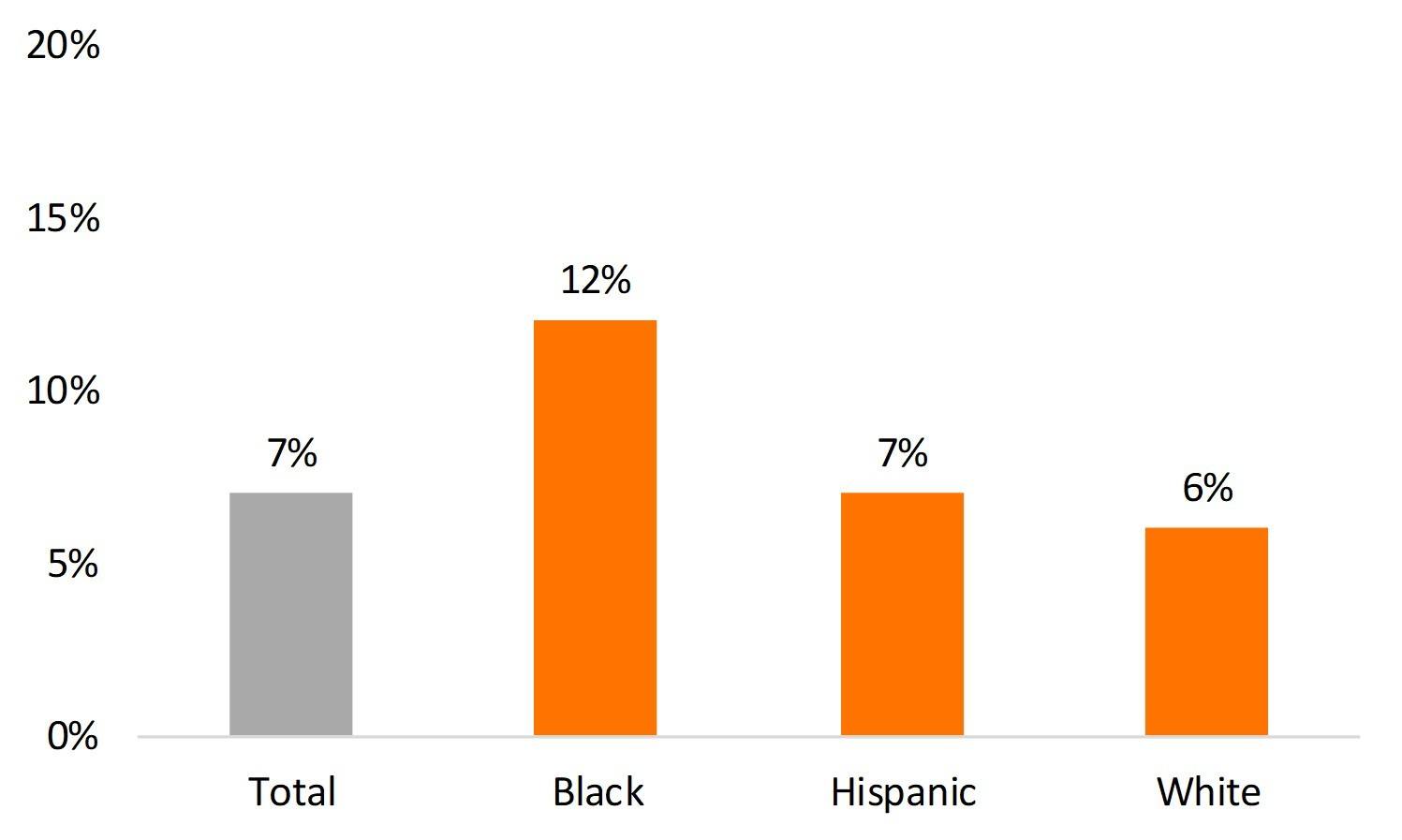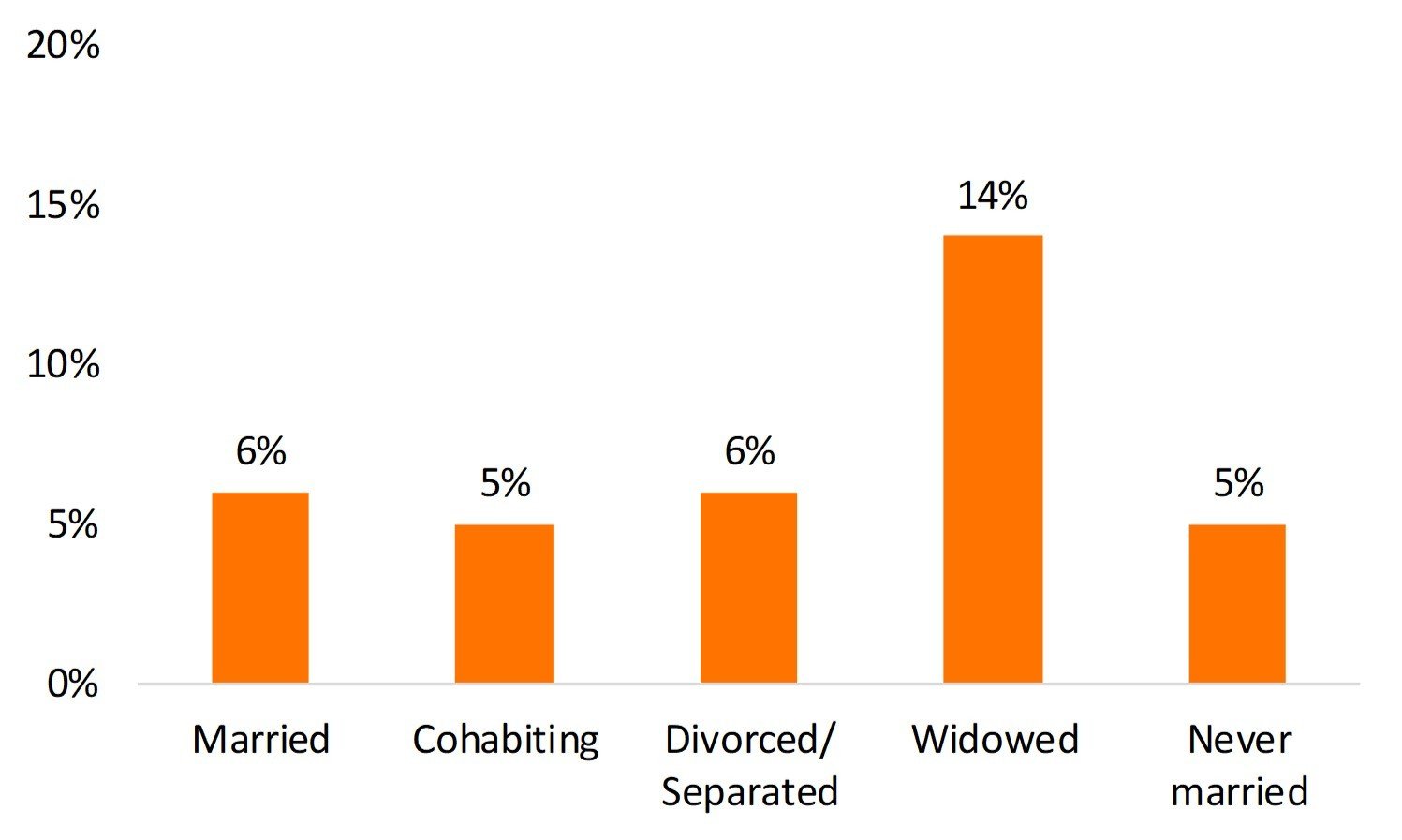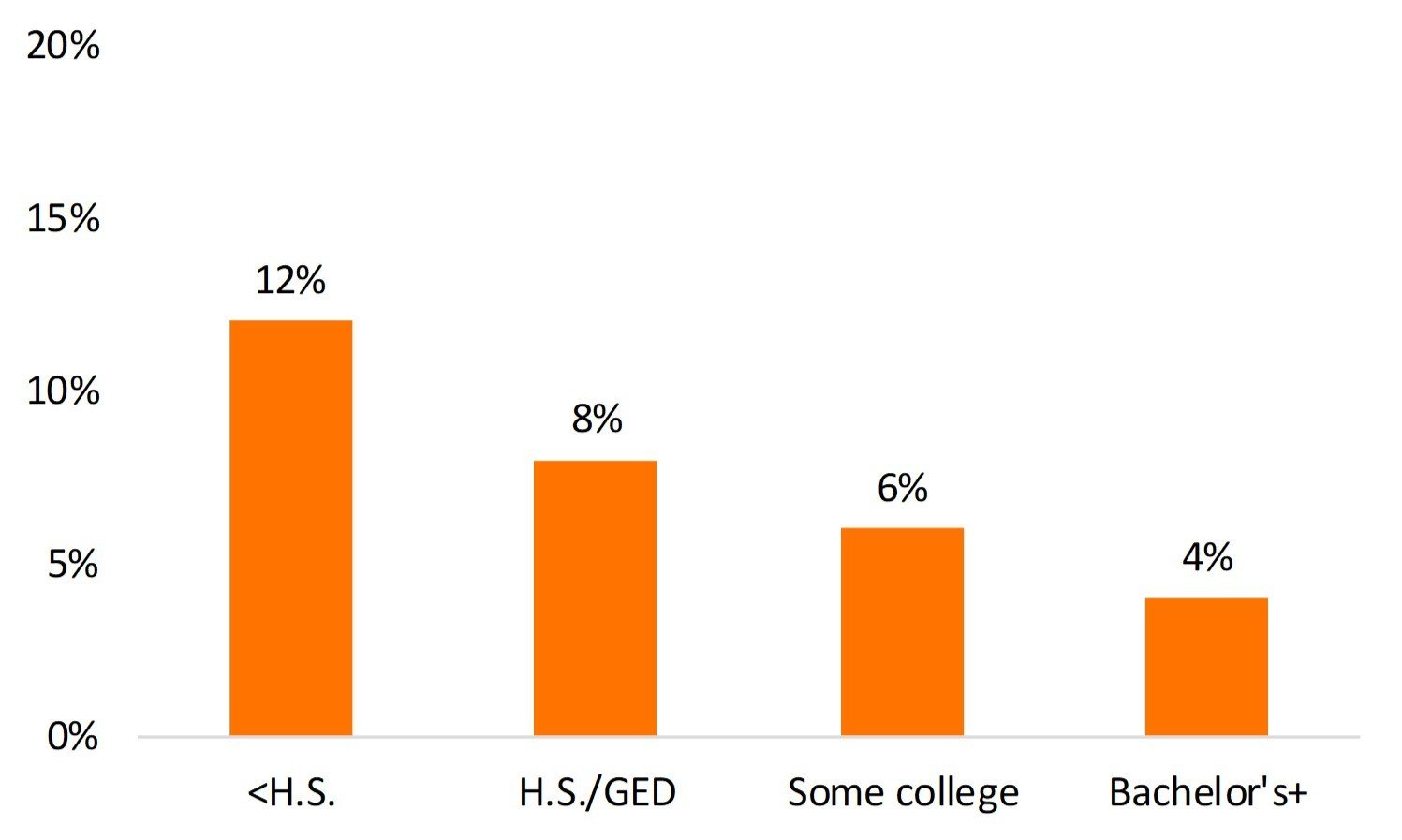Parental Bereavement in Mid- to Late-Life: The Death of a Child After Age 50
Family Profile No. 18, 2019
Author: Kagan A. Mellencamp
Typically, children are expected to outlive their parents. Yet considering the steady aging of the population, the number of parents who experience the death of a child, or parental bereavement, at later stages in the life course is expected to grow. Furthermore, recent research documents stark Black-White differences in exposure to parental bereavement after age 50 (“later life” hereafter; Umberson et al., 2017). Most research on bereavement in later life focuses on widowhood, so relatively little is known about demographic variation in parental bereavement during this stage in the life course. Parental bereavement has implications for parental well-being in later life. In this profile, we use weighted data from the 1998-2014 Health and Retirement Study (HRS) to provide a demographic portrait of parental bereavement across parental race-ethnicity, union status, and educational attainment. We define parental bereavement, or child death, in later life as experiencing the death of a biological child at age 50 or later.
Parental Bereavement in Later Life by Parental Race-Ethnicity
- Among adults aged 50 and older, the death of a child was disproportionately experienced by Black parents, as nearly 1 in 8 Black parents lost a child in later life.
- The death of a child in later life was twice as common for Black parents as White parents.
- White and Hispanic parents experienced similar levels of parental bereavement in later life (6% and 7%, respectively).
Figure 1. Parental Bereavement in Later Life by Parental Race-Ethnicity, 1998-2014

Source: NCFMR analyses of Health and Retirement Study, 1998-2014
Parental Bereavement in Later Life by Parental Union Status
- The experience of parental bereavement in later life was more than twice as common for widowed parents compared to parents of any other union status.
- About 1 in 7 widowed parents lost a child after age 50.
Figure 2. Parental Bereavement in Later Life by Parental Union Status, 1998-2014

Source: NCFMR analyses of Health and Retirement Study, 1998-2014
Parental Bereavement in Later Life by Parental Education
- There was a negative education gradient in the experience of child death in later life.
- Parents who did not have a high school degree experienced child death at much higher levels than parents who had a college degree.
Figure 3. Parental Bereavement in Later Life by Parental Education, 1998-2014

Source: NCFMR analyses of Health and Retirement Study, 1998-2014

Data Sources
- Health and Retirement Study, (RAND HRS Family Data 2014 (V2)) public use dataset. Produced and distributed by the University of Michigan with funding from the National Institute on Aging (grant number NIA U01AG009740). Ann Arbor, MI, (2018).
References
- Umberson, D., Olson, J. S., Crosnoe, R., Liu, H., Pudrovska, T., & Donnelly, R. (2017). Death of family members as an overlooked source of racial disadvantage in the United States. Proceedings of the National Academy of Sciences, 114(5), 915-920. https://doi.org/10.1073/pnas.1605599114
Suggested Citation
- Mellencamp, K. A. (2019). Parental bereavement in mid- to late-life: The death of a child after age 50. Family Profiles, FP-19-18. Bowling Green, OH: National Center for Family & Marriage Research. https://doi.org/10.25035/ncfmr/fp-19-18.
Updated: 11/10/2025 04:34PM

